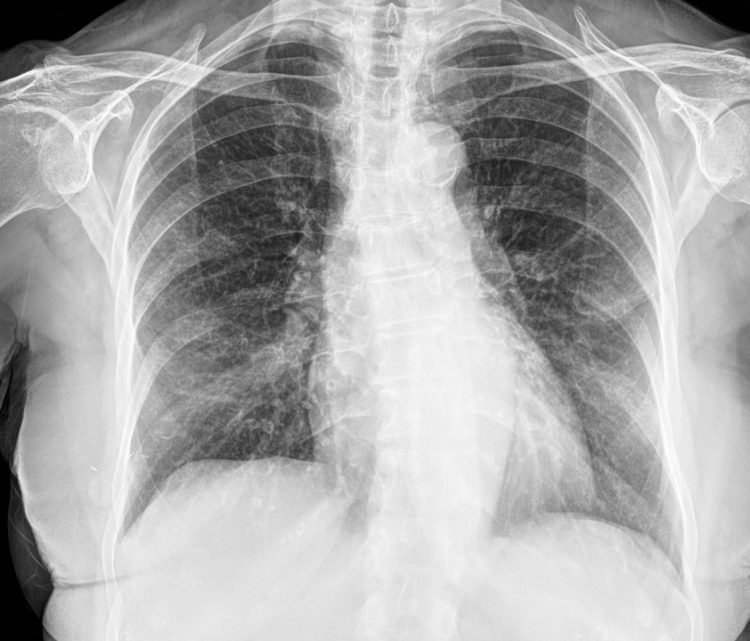Five times more deadly than the flu, COVID-19 causes significant morbidity and mortality. Like other pneumonias, pulmonary infection with COVID-19 results in inflammation and fluid in the lungs. COVID-19 looks very similar to other viral and bacterial pneumonias on chest radiographs, which makes it difficult to diagnose. Your computer vision model to detect and localize COVID-19 would help doctors provide a quick and confident diagnosis. As a result, patients could get the right treatment before the most severe effects of the virus take hold.
Currently, COVID-19 can be diagnosed via polymerase chain reaction to detect genetic material from the virus or chest radiograph. However, it can take a few hours and sometimes days before the molecular test results are back. By contrast, chest radiographs can be obtained in minutes. While guidelines exist to help radiologists differentiate COVID-19 from other types of infection, their assessments vary. In addition, non-radiologists could be supported with better localization of the disease, such as with a visual bounding box.
As the leading healthcare organization in their field, the Society for Imaging Informatics in Medicine (SIIM)’s mission is to advance medical imaging informatics through education, research, and innovation. SIIM has partnered with the Foundation for the Promotion of Health and Biomedical Research of Valencia Region (FISABIO), Medical Imaging Databank of the Valencia Region (BIMCV) and the Radiological Society of North America (RSNA) for this competition.
In this competition, you’ll identify and localize COVID-19 abnormalities on chest radiographs. In particular, you’ll categorize the radiographs as negative for pneumonia or typical, indeterminate, or atypical for COVID-19. You and your model will work with imaging data and annotations from a group of radiologists.
If successful, you’ll help radiologists diagnose the millions of COVID-19 patients more confidently and quickly. This will also enable doctors to see the extent of the disease and help them make decisions regarding treatment. Depending upon severity, affected patients may need hospitalization, admission into an intensive care unit, or supportive therapies like mechanical ventilation. As a result of better diagnosis, more patients will quickly receive the best care for their condition, which could mitigate the most severe effects of the virus.
FISABIO, The Foundation for the Promotion of Health and Biomedical Research of Valencia Region
The Foundation for the Promotion of Health and Biomedical Research of Valencia Region, FISABIO, is a non-profit scientific and healthcare entity, whose primary purpose is to encourage, to promote and to develop scientific and technical health and biomedical research in Valencia Region. FISABIO integrates and manages the Health Research Map of the Centre for Public Health Research, Dr. Peset University Hospital Foundation, Alicante University General Hospital Foundation, Elche University General Hospital Foundation, and the Mediterranean Ophthalmological Foundation. The BIMCV facility is connected with a multi-level vendor neutral archive (VNA). The imaging population facility is storing data from the Valencia Region, which accounts for more than 5.1 million habitants.
Radiological Society of North America (RSNA)
The Radiological Society of North America (RSNA) is a non-profit organization that represents 31 radiologic subspecialties from 145 countries around the world. RSNA promotes excellence in patient care and health care delivery through education, research and technological innovation.
RSNA provides high-quality educational resources, publishes five top peer-reviewed journals, hosts the world’s largest radiology conference and is dedicated to building the future of the profession through the RSNA Research & Education (R&E) Foundation, which has funded $66 million in grants since its inception. RSNA also supports and facilitates artificial intelligence (AI) research in medical imaging by sponsoring an ongoing series of AI challenge competitions.
Awards:-
Leaderboard Prizes: Awarded on the basis of private leaderboard rank. Only selected submissions will be ranked on the private leaderboard.
- 1st Place – $30,000
- 2nd Place – $20,000
- 3rd Place – $10,000
- 4th Place – $8,000
- 5th Place – $7,000
- 6th – 10th Places – $5,000 each
Student Team Prize: Awarded to the top-scoring eligible Student Team on the basis of private leaderboard rank. To be fulfilled by HP’s Fulfillment Agency
One HP ZBook Studio G8 data science workstation will be awarded to each member of the winning Student Team. Each ZBook is valued at $6,000.
Deadline:- 02-08-2021








